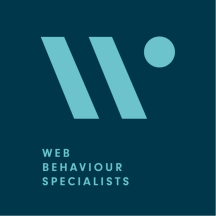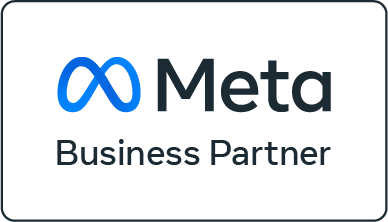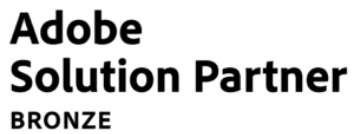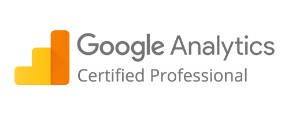While many industries have fully embraced digital marketing, the healthcare industry has been slow to adopt digital strategies.
 Today’s healthcare consumer, both patients and healthcare professionals, is very different to the healthcare consumer from the past. Today’s patients are able to do extensive research online which means they are far more particular about the services they receive. It’s also important to remember that carers have become an active party in the research phase, engaging in the digital marketing area when looking for health related information.
Today’s healthcare consumer, both patients and healthcare professionals, is very different to the healthcare consumer from the past. Today’s patients are able to do extensive research online which means they are far more particular about the services they receive. It’s also important to remember that carers have become an active party in the research phase, engaging in the digital marketing area when looking for health related information.
In today’s digital world, prospective patients are now active partners in their medical journey.
According to the latest research:
- In the past year 72% of global internet users have looked online for health information. Which has included e.g. treatments and procedures, symptoms, conditions or diseases, etc.
- 77% of patients use search engines to start their research as well as other channels such as Social Media
- Over 40% of patients use social media with Facebook being the main platform (e.g. for general information, to compare offerings across different brands, to evaluate specific features of the products/treatment, etc.)
- 45% of them watched an online video on YouTube (e.g. patient testimonials, patient-generated content, information gathering about treatments or understanding complicated procedures, etc.)
As the majority of patients and carers are active online and looking for solutions to their health problems, it is crucial that every medical practitioner or health/pharmaceutical related company has a digital marketing strategy in place. This will enable them to promote their products, services, treatment options, etc. and differentiate themselves and their services from other providers.
There are some facts/trends that should be considered when thinking about digital marketing in the healthcare industry:
Target audience:
There are different target audiences for healthcare marketers. Healthcare professionals used to be the primary target as they recommend, prescribe, advocate and buy products and services. But as patients and caregivers are becoming more and more health conscious and their awareness levels are increasing, they’ve become a very important target audience in the healthcare industry.  They don’t just blindly follow doctor’s advice any longer, but are becoming more and more aware and are able to give their suggestions to doctors on products/ treatments as well as the providers they are using. Digital marketing is helping with this by pushing and advertising products and services across several platforms, such as, apps, websites, blogs and social media.
They don’t just blindly follow doctor’s advice any longer, but are becoming more and more aware and are able to give their suggestions to doctors on products/ treatments as well as the providers they are using. Digital marketing is helping with this by pushing and advertising products and services across several platforms, such as, apps, websites, blogs and social media.
We’ve seen this shift in practice too. Working with one of the largest international medical device companies for several years, we’ve seen a shift from healthcare professionals focused campaigns into patients/caregivers. We promote more and more lifestyle related content which not only promotes products, its features or services, but also provides an emotional connection to the brand/health provider.
Consumers are active researchers:
Today, consumers no longer simply accept what a doctor tells them. Patients are able to do extensive research online which means they are more particular about the services they receive and the products they use. Consumers, especially younger ones, are turning to online resources to self-diagnose and discover treatment options which is making content even more important.
Working with the world’s #1 selling brand of pregnancy and ovulation tests, Clearblue, since 2008, over the years we’ve seen an increased interest in educational topics like pregnancy symptoms or what ovulation is. When the content is good, useful and in-depth, users are more willing to stay on the website to read it through and also look at other information like available products. We see similar behaviour across countries.
Read our case study on how we saved our client $1MM annually!
To engage and build connections with audiences it’s increasingly essential for healthcare organisations to present content that is in-depth, high quality, useful and tailored to patients/caregivers.
Digital channels overshadow traditional marketing:
 As mentioned at the beginning of this article, today’s healthcare consumer is very different to the healthcare consumer of the past. Today, consumers are no longer willing to blindly accept what a doctor tells them, preferring to do their homework/research before visiting a doctor. This means that patients have a far greater influence on medications, hospitals, treatments, etc.
As mentioned at the beginning of this article, today’s healthcare consumer is very different to the healthcare consumer of the past. Today, consumers are no longer willing to blindly accept what a doctor tells them, preferring to do their homework/research before visiting a doctor. This means that patients have a far greater influence on medications, hospitals, treatments, etc.
Healthcare is becoming more of a collaboration between doctors and consumers, which is why digital marketing has become the most effective way to grow healthcare brands and increase sales. Taking advantage of advanced targeting options which enable brands to promote their products and services to the most relevant audience, on the right platforms and at the right time, i.e. the moment someone is looking for specific information or help.
Health related brands have been moving their marketing budgets more and more into digital channels which has now overtaken traditional forms of marketing. Healthcare sectors like biotech, medical, diagnostics, pharmaceutical devices, etc. are benefiting from mobile apps, social media, digital sales, AI, etc. And as a result, the percentage of budget being allocated to digital continues to grow.
Again, we’ve seen this shift in practice. Our clients are moving more and more budget from traditional channels like TV or magazines into digital space. We run patient focused campaigns through Paid Search, YouTube, Facebook and Instagram. We target Healthcare Professionals with highly targeted Paid Search campaigns and through LinkedIn. For some awareness campaigns we also focus on The Display Network with highly engaging ads. Thanks to modern reporting systems we are able to measure the performance of each campaign with clear KPIs, which gives our clients the confidence to invest more when they see the positive results of the campaigns.
So how do we make digital marketing work in the healthcare industry?
- Search is indispensable in a patients journey, therefore you must optimise your site for search – your content as well as meta elements, images, etc.
- Mobile is the patient’s constant companion so make sure that all your content is accessible on mobile device
- Online video informs and connects so create video content that educates and inspire
- The majority of consumers in the healthcare industry trust social media so create a highly engaging social media strategy
- As patients are now active partners in their medical journey, create information rich content/blogs which cover health conditions, answers to important/common questions, quick tips and advice, etc.
- As patients are already looking online for health information, make sure that your website is user-friendly and easy to navigate
- As patients are getting more and more educated, educate them further through resourceful, regular emails
- As patients are active online across multiple channels, apply a multichannel digital marketing strategy and be there where your audience is
Digital transformation in the healthcare industry is a win-win. Patients become more informed, active participants with greater access to tools that help them lead healthier lives. Meanwhile, healthcare providers gain access to additional data about patients and are able to provide more personalised experiences and align with today’s value-based care paradigm.









